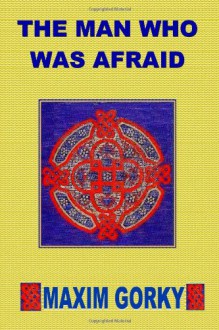IT is often supposed that Gorky only writes about the lowest stratum of Russian society—the outcasts and vagabonds. We even read, for instance, that "the bare-footed dreamer's life is Gorky's life, his ideals Gorky's ideals, his pleasures and pains Gorky's pleasures and pains;" or again that...
show more
IT is often supposed that Gorky only writes about the lowest stratum of Russian society—the outcasts and vagabonds. We even read, for instance, that "the bare-footed dreamer's life is Gorky's life, his ideals Gorky's ideals, his pleasures and pains Gorky's pleasures and pains;" or again that Gorky "finds the vagabond and outcast of society more sublime and significant than society itself," and has the courage to confess it. Now all that is rather grand, but, unfortunately, it gives quite a false impression. Gorky's range may not be so wide as Tolstoy’s or Turgenev’s, but, if he never reaches quite so high as the aristocracy, he does on the other hand tell us a good deal about the merchant class in Russia. Foma, in "The Man Who Was Afraid," is the son of a merchant, and possesses enormous wealth, and Ilia, in "Three of them," though humble and poor to begin with, rises in the social scale later on (by the murder of a rich merchant) and settles down to a dull but respectable existence as a small shopkeeper. But what it is more important to understand is that Gorky never openly lets you see where his sympathies lie: he never, that is to say, takes sides with any of his characters, never betrays animosity against society at large, or the existing order of things in Russia, and, above all, never moralizes. And so, when he writes of suffering and evil, he writes none the less forcibly because he lets his facts speak for themselves, and keeps us unaware of his presence. Thus the real fallacy in the remarks I have quoted lies in the assumption that Gorky is nothing but an idealist of the noisy romantic type. A less important, but perhaps commoner, view to take is that of old-fashioned people who in the interests, sometimes of art, sometimes of morality, raise the cry of Atheist! Realist! and object to Gorky just because he deals with what is sordid, realistic, disagreeable. But if this means that fiction is to be restricted to a special subject matter—the lives of the fairly respectable, then all we can say is that the conception of art which demands the closing of one's eyes to half the facts of life is a very narrow one, and that the morality of some people is prudish. We need not let this view detain us; the chief interest of it lies in its contrast to the previous one. In the eyes of some Gorky is an idealist, in the eyes of others he is a realist; we need not be alarmed at that. For reasons already noted, every good writer who aims at greater fidelity to life is always liable to have both labels fastened on him by captious critics. The fact in no degree detracts from his reputation, but rather does him credit. It is possible, however, to charge Gorky with a different kind of idealism—in the sense, that is, in which "ideal" is equivalent to "unreal;" and the charge is formidable enough to deserve careful investigation. A comparison with Tolstoy in this connection may help us towards finding a verdict.
show less

